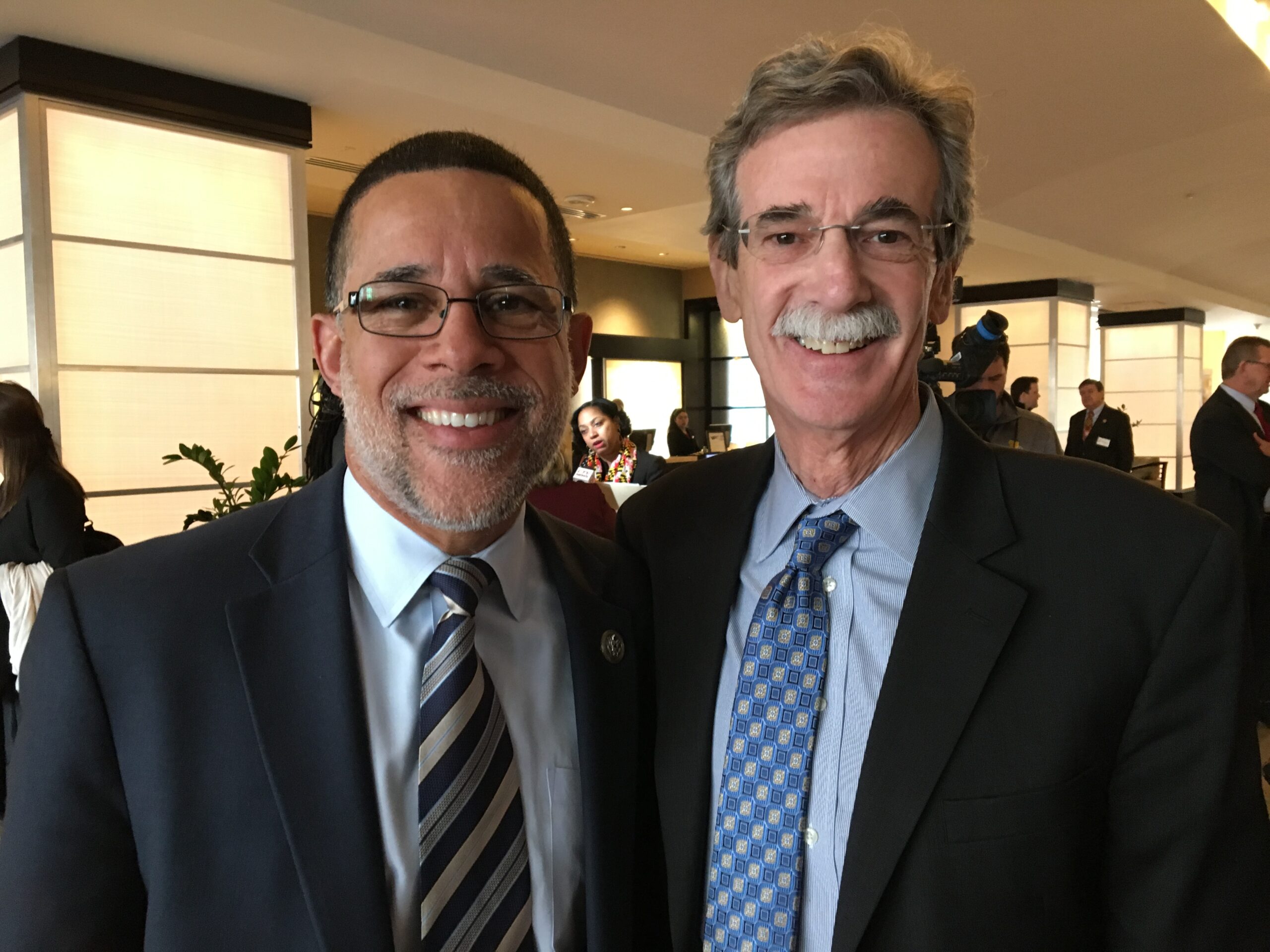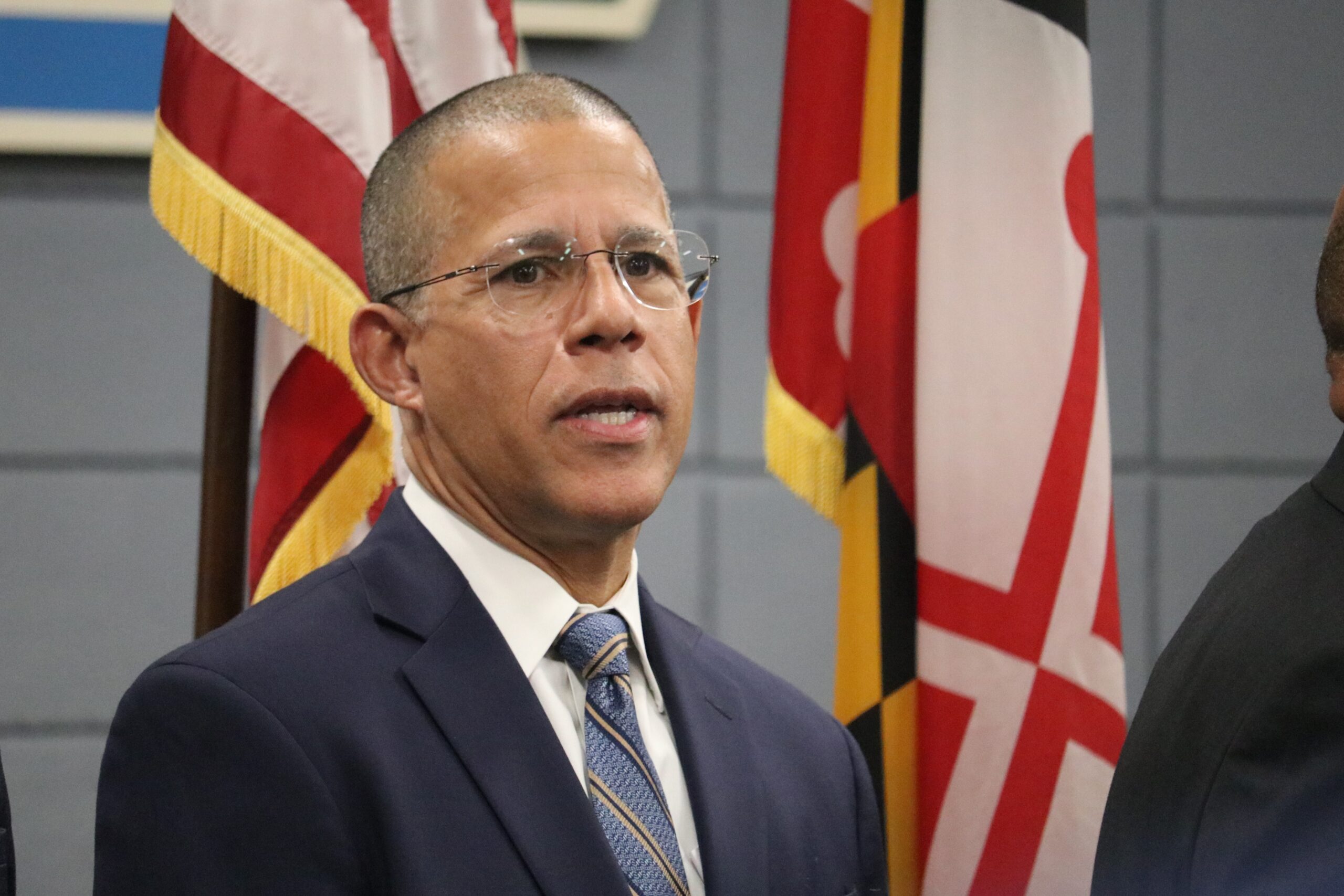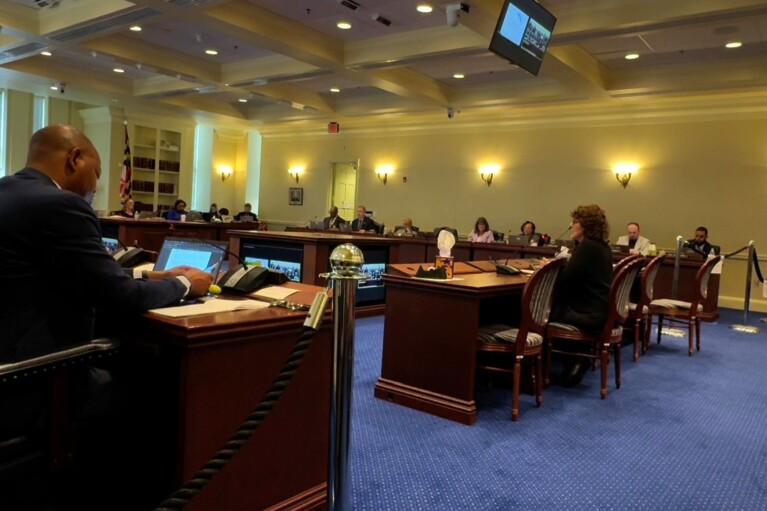Mild-mannered A.G. says he will miss being able to haul the ‘bad guys’ into court

For most of his 36 years in public office, Brian Frosh has wielded outsized influence — first as chairman of the state Senate’s Judicial Proceedings Committee, more recently as Maryland’s attorney general.
But you wouldn’t know it from being around him.
Unlike his outspoken predecessors in those posts — JPR Chair Walter Baker (D-Cecil) and AG Doug Gansler (D) — Frosh is reserved. He never appeared driven by a desire to get his name in the newspaper. Colleagues on both sides of the aisle regard him to be cordial and gentlemanly. (He is occasionally hard to hear, as his voice barely rises above a whisper.)
The 76-year-old Frosh (D), who steps down today, acknowledged in a recent interview that he will miss the muscular elements of his job — chief among them the ability to drag polluters, scammers and other cheaters into court to answer for their crimes.
“I’m used to that,” he said. “It’s going to be hard to get rid of it.”
Since his election in 2014, Frosh has led a staff of more than 600 employees, overseeing a $40 million budget. He has notched major victories over pharmaceutical firms, polluters, unscrupulous lenders and nursing home operators, gang leaders and drug traffickers. He filed consumer protection cases against some of the biggest names in American commerce and against small-time crooks operating in the shadows.
Settlements, including many in which Maryland partnered with other states, reached hundreds of millions — and in some cases billions — of dollars.
“I wake up pretty much every day and say, ‘I can’t believe they’re paying me to do this,’” Frosh said. “I feel very privileged, very lucky, to have had the opportunity” to serve.
During the Trump years, he joined forces with other Democratic attorneys general to battle the president over his family separation policy, the “Muslim ban,” his use of his D.C. hotel to enrich himself at taxpayers’ expense and more. They also fought White House efforts to erode national environmental law and the Affordable Care Act.
His decision to wage high-profile battles with the president sparked criticism from some Republicans, who accused him of engaging in partisan warfare.
“That was insane,” Frosh said of the Trump era. “Democratic attorneys general had to fight those battles. …There was nobody standing up to him except for us.”
“I think we had a huge impact.”
‘An eight-year workaround’
Maryland’s attorney general is the state’s top lawyer and his or her team works closely with state agencies, representing them in court and offering legal advice. But relations can fray during periods where the governor and the independently elected AG don’t see eye-to-eye.
Frosh and Gov. Larry Hogan (R), who also took office in 2015, had a non-existent relationship. Frosh called it “an eight-year workaround.”
“I’ve had very good relationships with the governor’s chief counsels. They’ve been good lawyers and smart people. …So on the legal end it’s been okay,” he said, choosing his words carefully. “We’ve had more difficult relationships with some of the cabinet secretaries.”
Frosh said that under Hogan, Maryland’s top environment, labor and health officials have been reluctant to go after lawbreakers. “They’re very open about it,” he said. “They don’t like to do enforcement.”
According to Frosh, state agencies would rather provide “compliance assistance” than issue sanctions, a practice he said results in more bad acts. He also said it puts law-abiding firms at a competitive disadvantage.
“Inside the agency, they talk about being in the customer service business,” Frosh said of the Department of the Environment. “Their customers are the polluters. …It’s not the people who are breathing the air and drinking the water. It’s the people who are polluting the air and polluting the water. That’s outrageous.”
A Hogan spokesman declined to comment.
Agencies that have withered
It’s not just enforcement capabilities that have withered since Hogan took office, Frosh maintains. It’s also core competence. He points to the labor department’s difficulties in getting unemployment checks to jobless Marylanders, the health department’s decision to stick with Optum, a claims processor that was the subject of a scathing audit, and a near-total lack of air and water inspectors at the Department of the Environment.
Frosh predicted that when Gov.-elect Wes Moore’s team takes over in mid-January, “you’re going to find these crises all over the damn place.”
“They don’t care whether government works for the people or not,” he added. “Governor-elect Moore is going to have a huge problem building government back. …We don’t have a functioning government in many agencies in Maryland. And I think you’re going to see a hundreds of millions of dollars shortfall to put government back to where it was before Larry Hogan took office.”
Critiques of approach to street crime, clergy abuse
Critics complain that Frosh has not done enough to respond to the crime crisis in Baltimore. He points to the organized crime unit that he established shortly after taking office, an office that includes eight lawyers and a handful of investigators. He credited the unit with delving “more deeply into the kind of street crime that Baltimore is suffering so much from.”
“Instead of one case” where an accused gun-runner or narcotics distributor gets probation before judgement, he said, “we’re able to develop much bigger cases” using wiretaps, surveillance and other methods.
Frosh has also been criticized by groups representing survivors of sexual abuse at the hands of clergy. They claim he has not moved with a sense of urgency to take down predator priests and the superiors who shielded them. As he wraps up his tenure, Frosh is pushing for the release of a just-completed report on the Archdiocese of Baltimore’s failure to report criminal acts to law enforcement.
The report relies heavily on grand jury testimony, which is traditionally kept confidential, complicating prospects for its release.
“I think it’s extremely important that the report be made public,” he said. “It’s the only way that the survivors — the victims — can get justice.”
A judge has imposed a confidentiality order on the litigants, limiting what the AG can say publicly, but he called the contents of the 456-page report “horrific.”

Attorney General Brian Frosh (D), left, greets Treasurer Nancy Kopp (D) and Del. Marc Korman (D-Montgomery) at a breakfast on Jan. 7, 2020. Photo by Bruce DePuyt.
Moving on
Frosh said he was wracked by ambivalence about his 2021 decision not to seek a third term. Even as he begins to pack up after eight years on the job, he acknowledges he’s “still ambivalent about what’s next.”
“I don’t want to just do crossword puzzles or sit on a beach,” he said. “I hope I can find work on policy stuff. I’m interested in working on climate, on democracy, on poverty and gun safety. Those kinds of things.”
The Montgomery Democrat, whose only electoral defeat was a 1982 bid for the state Senate, frets openly that he “won’t have the kind of leverage that I’ve had for the past 36 years.”
“It will be harder to make a difference. But I hope to be able to continue engaging and moving the issues that I care about forward — in a different way.”
Rep. Anthony Brown (D) will take over as AG next week. He defeated former Judge Katie Curran O’Malley (D), daughter of former Attorney General Joe Curran (D), in this year’s Democratic primary.
If he was entering office now, Frosh said he would seek to boost salaries for his lawyers and fight for the funds needed to upgrade the tools his staff relies on. “We’re using some of the finest software from the 1990s,” he joked.
As he walked to a neighborhood market to pick up food for the office holiday party, Frosh described his career “as a thrill the whole way through.”
“I loved being the in the House. I loved being in the Senate,” he said. “Being AG has been the best.”




 Creative Commons Attribution
Creative Commons Attribution